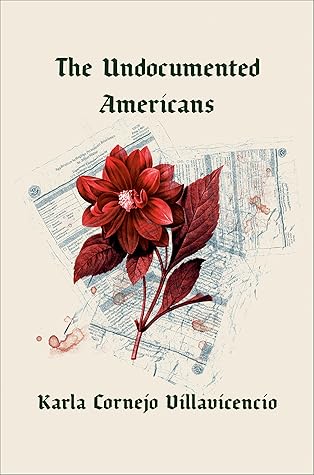More on this book
Community
Kindle Notes & Highlights
Read between
January 11 - January 23, 2023
I never press them for more details because I don’t want to apply pressure on a bruise.
“In times of crisis, day laborers are often the first responders,” one labor organizer told me.
In our community, there is an ingrained idea that if you are sick, it’s a weakness, a symptom of our internalized bootstraps mythology.
My parents scolded and taunted me whenever I cried as a child—they found it weak and threatening—and so I don’t like to see people cry. It embarrasses and angers me. I change the topic every time her eyes water.
As a rule, I try to not tell strangers my nightmares unless I’m being paid by the word.
But I said, you know what, I’m not the first this has happened to and I’m not the last.”
General Motors stopped using Flint-sourced water at one of their remaining truck plants because they feared the water would corrode the parts.
The government wanted the people of Flint dead, or did not care if they died, which is the same thing, and set in motion a plan for them to be killed slowly through negligence at the highest levels.
What I saw in Flint was a microcosm of the way the government treats the undocumented everywhere, making the conditions in this country as deadly and toxic and inhumane as possible so that we will self-deport. What I saw in Flint was what I had seen everywhere else, what I had felt in my own poisoned blood and bones. Being killed softly, silently, and with impunity.
It’s the same people who donate every time, older white hippies and children of immigrants, not my former Harvard classmates who post pictures of themselves at rooftop happy hours every day, the kids who work at Silicon Valley start-ups, the ones who have precious weddings with hashtags and babies they want to make sure you know the sex of.
I personally subscribe to Dr. King’s definition of an “unjust law” as being “out of harmony with the moral law.” And the higher moral law here is that people have a human right to move, to change location, if they experience hunger, poverty, violence, or lack of opportunity, especially if that climate in their home countries is created by the United States, as is the case with most third world countries from which people migrate. Ain’t that ’bout a bitch?
their knees beating their chests and crying out to god for forgiveness. I look at them intently. Some of them seem for real but overall it’s super performative. I do not pray to god for forgiveness, because I believe I have nothing to apologize for and he might have to explain a couple of things to me, so I just sit there, moping, angry, but still trying to radiate positive vibes because I’m not going to be the person who is ruining faithful migrants’ experience of community.
respect the role of god in the lives of people who suffer but basically only in the lives of people who suffer.
As adults, we can all remember the moments when we realized our parents were not infallible, that they were mortal, that they were vulnerable people.
The twisted inversion that many children of immigrants know is that, at some point, your parents become your children, and your own personal American dream becomes making sure they age and die with dignity in a country that has never wanted them.
This country takes their youth, their dreams, their labor, and spits them out with nothing to show for it.
I think about the work of Roberto Gonzales, a Harvard scholar who has conducted longitudinal studies on the effects of undocumented life on young people. As a result of all the stressors of migrant life, he found his subjects suffered chronic headaches, toothaches, ulcers, sleep problems, and eating issues.
Mira theorizes that Latin American culture is so imbued with patriarchal values that paint women as natural caregivers and nurturers that women feel a greater responsibility toward aging parents, and women who are not able to balance or reject those values feel an inescapable burden.
I asked almost everyone I interviewed for this book about regrets, but they didn’t tell me many. That’s not what they remember of their time here. That’s not what we’ll remember when we have to leave, by choice, force, or casket.


